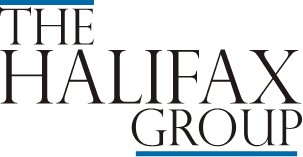Doing More with Less: The New Reality of the Security Industry in 2009
By Cynthia Freschi
As seen in Security Magazine March 2009
Video surveillance and the broader field of security technology and management have traditionally been cocooned from the ravages of a cyclical economy. When times are tough, businesses want to protect what they have and tend to purchase to help ensure the safety and security of people, property and assets. And when times are good, businesses are more likely to upgrade or implement new technology and thereby spend on security technology. But as we listen to the forecasts for 2009 and look at comparable sales numbers from previous years, it becomes quite evident that these truisms may no longer apply and, as an industry, we will not be able to rely on old norms to see us through these difficult times.
In an uncertain economy, organizations may be tempted to tighten up spending, reduce training costs and implement a hiring freeze or headcount reductions. These actions can do more harm than good however by reducing customer service in a period when competition is fiercest.
Success in this new environment will demand an expansion of skill-sets of not only the technical staff, but also of sales staff and sourcing professionals. You can be assured that the purchase process in the new environment is a rigorous one and integrators will be expected to demonstrate expertise in technology application, customer service and return on investment. In order to meet these more stringent processes, security providers will be required to invest in the training and development of staff with regard to network technology and project management as well as giving the sales people the finance skills they need to effectively demonstrate ROI (Return on Investment) to the customers.
New technologies are expanding the opportunities for security providers to demonstrate the bottom-line benefits of security. The relevance of these technologies helps to ensure that the dollars spent confront security threats in addition to providing a return on the investment. For instance, wide dynamic range and megapixel cameras deliver brilliantly stunning images in a wide variety of lighting conditions and can reduce the number of cameras required in a system, compared to traditional video cameras. This technology can also enhance automated analysis and the use and benefit of alarm tools. For IP-based systems, H.264 compression technology uses less bandwidth, reduces storage needs and in general can increase the overall efficiency of a system. Additionally, H.264 compression is the perfect technology for megapixel cameras because it will not compromise the image quality.
Further, as intelligence capabilities move out to the network cameras, systems can scale much more easily. And the benefit of distributed intelligence can mean fewer staff required to monitor the cameras and a potential upswing in the effectiveness of the system. In addition to the cost-savings enjoyed with PoE (Power over Ethernet), network-based systems can also be integrated much more readily with other equipment and functions (i.e. access control, building systems, etc.) and as downsizing in corporations occur, it will be much easier to reconfigure systems to accommodate personnel changes.
Now, more than ever, the security function cannot operate separately from the business of the organization but must be integrated into every aspect of the business. The security team can and must contribute to the success of a business. And when security integrators can effectively and efficiently demonstrate an ROI for a security system that extends beyond risk mitigation, it is a very attractive proposition in tough economic times.
Doing more with less seems to be the key to surviving in this challenging economic time and this approach can also be applied to internal procedures and processes to help weather the storm. Security providers should be prepared to be innovative in their business methods or models, whether it’s making better use of time, clear and refined market positioning or differentiating and highlighting products and services to stand out more in the crowd. An experienced and knowledgeable team is an invaluable resource and this strength can be advantageously leveraged to secure new business opportunities. Staying aware of trends such as increased remote monitoring and management, improving user awareness and providing appropriate solutions are also areas in which security providers can improve their business strategies — and with minimal financial investments.
Even with the challenging economy, the overall demand for security is now universally recognized as a mission-critical function. It’s just going to take a little more effort and creativity to make the sale.


